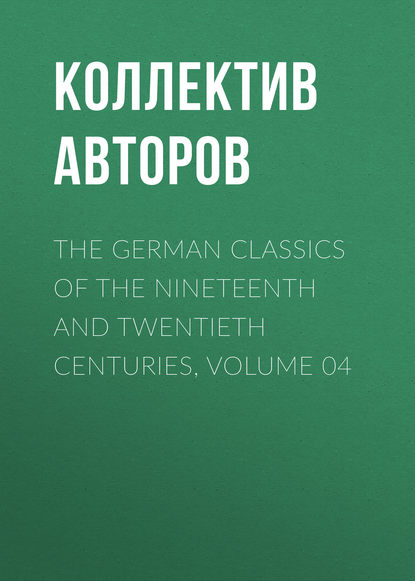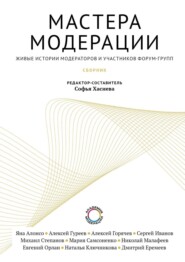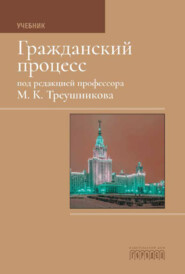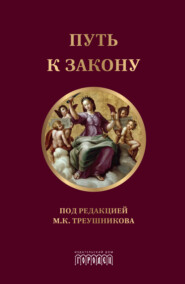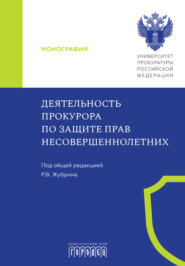По всем вопросам обращайтесь на: info@litportal.ru
(©) 2003-2024.
✖
The German Classics of the Nineteenth and Twentieth Centuries, Volume 04
Настройки чтения
Размер шрифта
Высота строк
Поля
Seven preternaturally long faces at this point started up like the Seven-sleepers. The Consistorial Councillor, a man still young but celebrated throughout all Germany for his oral and printed sermons, considered himself the one most insulted by such taunts. From the Alsatian Flitte there escaped an oath accompanied by a slight smack of the tongue. The chin of Flachs, the Preacher-at-Early-Service, grew downward into a regular beard.
The City Councillors could hear several softly ejaculated obituaries referring to the late Kabel under the name of scamp, fool, infidel, etc. But the officiating Burgomaster waved his hand, the Attorney of the Royal Treasury and the Bookseller again bent all the elastic steel springs of their faces as if setting a trap, and the Burgomaster continued to read, although with enforced seriousness.
"THIRD CLAUSE
I make an exception of the present house in Dog Street which, after this my third clause, shall, just as it stands, devolve upon and belong to that one of my seven above-named relatives, who first, before the other six rivals, can in one half hour's time (to be reckoned from the reading of the Clause) shed one or two tears over me, his departed uncle, in the presence of an estimable magistrate who shall record the same. If, however, all eyes remain dry, then the house likewise shall fall to the exclusive heir whom I am about to name."
Here the Burgomaster closed the will, remarked that the condition was certainly unusual but not illegal, and the court must adjudge the house to the first one who wept. With which he placed his watch, which pointed to half-past eleven, on the office-table, and sat himself quietly down in order in his capacity of executor to observe, together with the whole court, who should first shed the desired tear over the testator. It cannot fairly be assumed that, as long as the earth has stood, a more woe-begone and muddled congress ever met upon it than this one composed of seven dry provinces assembled together, as it were, in order to weep. At first some precious minutes were spent merely in confused wondering and in smiling; the congress had been placed too suddenly in the situation of the dog who, when about to rush angrily at his enemy, heard the latter call out: Beg!—and who suddenly got upon his hind legs and begged, showing his teeth. From cursing they had been pulled up too quickly into weeping.
Every one realized that genuine emotion was not to be thought of; downpours do not come quite so much on the gallop; such sudden baptism of the eyes was out of the question; but in twenty-six minutes something might happen.
The merchant Neupeter asked if it were not an accursed business and a foolish joke on the part of a sensible man, and he refused to lend himself to it; but the thought that a house might swim into his purse on a tear caused him a peculiar irritation of the glands, which made him look like a sick lark to whom a clyster is being applied with an oiled pinhead—the house being the head.
The Attorney of the Royal Treasury Knol screwed up his face like a poor workman, whom an apprentice is shaving and scraping on a Saturday evening by the light of a shoemaker's candle; he was furiously angry at the misuse made of the title "Will" and quite near to shedding tears of rage.
The crafty Bookseller Passvogel at once quietly set about the matter in hand; he hastily went over in his mind all the touching things which he was publishing at his own expense or on commission, and from which he hoped to brew something; he looked the while like a dog that is slowly licking off the emetic which the Parisian veterinary, Demet, had smeared on his nose; it would evidently be some time before the desired effect would take place.
Flitte from Alsace danced around in the Burgomaster's office, looked laughingly at all the serious faces and swore he was not the richest among them, but not for all Strasburg and Alsace besides was he capable of weeping over such a joke.
At last the Police-Inspector looked very significantly at him and declared: In case Monsieur hoped by means of laughter to squeeze the desired drops out of the well-known glands and out of the Meibomian, the caruncle, and others, and thus thievishly to cover himself with this window-pane moisture, he wished to remind him that he could gain just as little by it as if he should blow his nose and try to profit by that, as in the latter case it was well known that more tears flowed from the eyes through the ductus nasalis than were shed in any church-pew during a funeral sermon. But the Alsatian assured him he was only laughing in fun and not with serious intentions.
The Inspector for his part tried to drive something appropriate into his eyes by holding them wide open and staring fixedly.
The Preacher-at-Early-Service Flachs looked like a Jew beggar riding a runaway horse. Meanwhile his heart, which was already overcast with the most promising sultry clouds caused by domestic and church-troubles, could have immediately drawn up the necessary water, as easily as the sun before bad weather, if only the floating-house navigating toward him had not always come between as a much too cheerful spectacle, and acted as a dam.
The Consistorial Councillor had learned to know his own nature from New Year's and funeral sermons, and was positive that he himself would be the first to be moved if only he started to make a moving address to others. When therefore he saw himself and the others hanging so long on the drying-line, he stood up and said with dignity: Every one who had read his printed works knew for a certainty that he carried a heart in his breast, which needed to repress such holy tokens as tears are—so as not thereby to deprive any fellowman of something—rather than laboriously to draw them to the surface with an ulterior motive. "This heart has already shed them, but in secret, for Kabel was my friend," he said, and looked around.
He noticed with pleasure that all were sitting there as dry as wooden corks; at this special moment crocodiles, stags, elephants, witches, ravens[10 - The German texts read: Reben, vines. But the conjecture Raben as the correct reading may be permitted.—ED.] could have wept more easily than the heirs, so disturbed and enraged were they by Glanz. Flachs was the only one who had a secret inspiration. He hastily summoned to his mind Kabel's charities and the mean clothes and gray hair of the women who formed his congregation at the early-service, Lazarus with his dogs, and his own long coffin, and also the beheading of various people, Werther's Sorrows, a small battlefield, and himself—how pitifully here in the days of his youth he was struggling and tormenting himself over the clause of the will—just three more jerks of the pump-handle and he would have his water and the house.
"O Kabel, my Kabel!" continued Glanz, almost weeping for joy at the prospect of the approaching tears of sorrow. "When once beside your loving heart covered with earth my heart too shall mol—"
"I believe, honored gentlemen," said Flachs mournfully, arising and looking around, his eyes brimming over, "I am weeping." After which he sat down again and let them flow more cheerfully; he had feathered his nest. Under the eyes of the other heirs he had snatched away the prize-house from Glanz, who now extremely regretted his exertions, since he had quite uselessly talked away half of his appetite. The emotion of Flachs was placed on record and the house in Dog Street was adjudged to him for good and all. The Burgomaster was heartily glad to see the poor devil get it. It was the first time in the principality of Haslau that the tears of a school-master and teacher-of-the-church had been metamorphosed, not like those of the Heliades into light amber, which incased an insect, but like those of the goddess Freya, into gold. Glanz congratulated Flachs, and gayly drew his attention to the fact that perhaps he, Glanz, had helped to move him. The rest drew aside, by their separation accentuating their position on the dry road from that of Flachs on the wet; all, however, remained intent upon the rest of the will.
Then the reading of it was continued.
WILHELM VON HUMBOLDT
* * * * *
SCHILLER AND THE PROCESS OF HIS INTELLECTUAL DEVELOPMENT
From the Introduction to the Correspondence of Schiller and W. von Humboldt (1830)
TRANSLATED BY FRANCES H. KING
Schiller's poetic genius showed itself in his very first productions. In spite of all their defects in form, in spite of many things which to the mature artist seemed absolutely crude, The Robbers and Fiesko gave evidence of remarkable inherent power. His genius later betrayed itself in the longing for poetry, as for the native atmosphere of his spirit, which longing constantly breaks out in his varied philosophical and historical labors and is often hinted at in his letters to me. It finally revealed itself in virile power and refined purity in those dramas which will long remain the pride and the renown of the German stage.
This poetic genius, however, is most closely wedded, in all its height and depth, to thought; it manifests itself, in fact, in an intellectuality which by analysis would separate everything into its parts, and then by combination would unite all in one complete whole. In this lies Schiller's peculiar individuality. He demanded of poetry more profundity of thought and forced it to submit to a more rigid intellectual unity than it had ever had before. This he did in a two-fold manner—by binding it into a more strictly artistic form, and by treating every poem in such a way that its subject-matter readily broadened its individuality until it expressed a complete idea.
It is upon these peculiarities that the excellence which characterizes Schiller as a writer rests. It is because of them that, in order to bring out the greatest and best of which he was capable, he needed a certain amount of time before his completely developed individuality, to which his poetic genius was indissolubly united, could reach that point of clearness and definiteness of expression which he demanded of himself. * * *
On the other hand, it would probably be agreeable to the reader of this correspondence if I should attempt briefly to show how my opinion of Schiller's individuality was formed by intercourse with him, by reminiscences of his conversation, by the comparison of his productions in their successive sequence, and by a study of the development of his intellect.
What must necessarily have impressed every student of Schiller as most characteristic was the fact that thinking was the very substance of his life, in a higher and more significant sense than perhaps has ever been the case with any other person. His intellect was alive with spontaneous and almost tireless activity, which ceased only when the attacks of his physical infirmity became overpowering. Such activity seemed to him a recreation rather than an effort, and was manifested most conspicuously in conversation, for which Schiller appeared to have a natural aptitude.
He never sought for deep subjects of conversation, but seemed rather to leave the introduction of a subject to chance; but from each topic he led the discourse up to a general point of view, and after a short dialogue one found oneself in the very midst of a mentally stimulating discussion. He always treated the central idea as an end to be attained in common; he always seemed to need the help of the person with whom he was conversing, for, although the latter always felt that the idea was supplied by Schiller alone, Schiller never allowed him to remain inactive.
This was the chief difference between Schiller's and Herder's mode of conversing. Never, perhaps, has there been a man who talked with greater charm than Herder, if one happened to catch him in an agreeable mood—not a difficult matter when any kind of note was struck with which he was in harmony.
All the extraordinary qualities of this justly admired man seemed to gain double power in conversation, for which they were so peculiarly adapted. The thought blossomed forth in expression with a grace and dignity which appeared to proceed from the subject alone, although really belonging only to the individual. Thus speech flowed on uninterruptedly with a limpidness which still left something remaining for one's own imagination, and yet with a chiaroscuro which did not prevent one from definitely grasping the thought. As soon as one subject was exhausted a new one was taken up. Nothing was gained by making objections which would only have served as a hindrance. One had listened, one could even talk oneself, but one felt the lack of an interchange of thought.
Schiller's speech was not really beautiful, but his mind constantly strove, with acumen and precision, to make new intellectual conquests; he held this effort under control, however, and soared above his subject in perfect liberty. Hence, with a light and delicate touch he utilized any side-issue which presented itself, and this was the reason why his conversation was peculiarly rich in words that are so evidently the inspiration of the moment; yet, in spite of such seeming freedom in the treatment of the subject, the final end was not lost sight of. Schiller always held with firmness the thread which was bound to lead thither, and, if the conversation was not interrupted by any mishap, he was not prone to bring it to a close until he had reached the goal.
And as Schiller in his conversation always aimed to add new ground to the domain of thought, so, in general, it may be said that his intellectual activity was always characterized by an intense spontaneity. His letters demonstrate these traits very perceptibly, and he knew absolutely no other method of working.
He gave himself up to mere reading late in the evening only, and during his frequently sleepless nights. His days were occupied with various labors or with specific preparatory studies in connection with them, his intellect being thus kept at high tension by work and research.
Mere studying undertaken with no immediate end in view save that of acquiring knowledge, and which has such a fascination for those who are familiar with it that they must be constantly on their guard lest it cause them to neglect other more definite duties—such studying, I say, he knew nothing about from experience, nor did he esteem it at its proper value. Knowledge seemed to him too material, and the forces of the intellect too noble, for him to see in this material anything more than mere stuff to be worked up. It was only because he placed more value upon the higher activity of the intellect, which creates independently out of its own depths, that he had so little sympathy with its efforts of a lower order. It is indeed remarkable from what a small stock of material and how, in spite of wanting the means by which such material is procured by others, Schiller obtained his comprehensive theory of life (Weltanschauung), which, when once grasped, fairly startles us by the intuitive truthfulness of genius; for one can give no other name to that which originates without outside aid.
Even in Germany he had traveled only in certain districts, while Switzerland, of which his William Tell contains such vivid descriptions, he had never seen. Any one who has ever stood by the Falls of the Rhine will involuntarily recall, at the sight, the beautiful strophe in The Diver in which this confusing tumult of waters, that so captivates the eye, is depicted; and yet no personal view of these rapids had served as the basis for Schiller's description.
But whatever Schiller did acquire from his own experience he grasped with a clearness which also brought distinctly before him what he learned from the description of others. Besides, he never neglected to prepare himself for every subject by exhaustive reading. Anything that might prove to be of use, even if discovered accidentally, fixed itself firmly in his memory; and his tirelessly-working imagination, which, with constant liveliness, elaborated now this now that part of the material collected from every source, filled out the deficiencies of such second-hand information.
In a manner quite similar he made the spirit of Greek poetry his own, although his knowledge of it was gained exclusively from translations. In this connection he spared himself no pains. He preferred translations which disclaimed any particular merit in themselves, and his highest consideration was for the literal classical paraphrases.
* * * The Cranes of Ibycus and the Festival of Victory wear the colors of antiquity with all the purity and fidelity which could be expected from a modern poet, and they wear them in the most beautiful and most spirited manner. The poet, in these works, has quite absorbed the spirit of the ancient world; he moves about in it with freedom, and thus creates a new form of poetry which, in all its parts, breathes only such a spirit. The two poems, however, are in striking contrast with each other. The Cranes of Ibycus permitted a thoroughly epic development; what made the subject of intrinsic value to the poet was the idea which sprung from it of the power of artistic representation upon the human soul. This power of poetry, of an invisible force created purely by the intellect and vanishing away when brought into contact with reality, belonged essentially to the sphere of ideas which occupied Schiller so intensely.
As many as eight years before the time when this subject assumed the ballad form within his mind it had floated before his vision, as is evident in the lines which are taken from his poem The Artists—
"Awed by the Furies' chorus dread
Murder draws down upon its head
The doom of death from their wild song."
This idea, moreover, permitted an exposition in complete harmony with the spirit of antiquity; the latter had all the requisites for bringing it into bold relief in all its purity and strength. Consequently, every particular in the whole narrative is borrowed immediately from the ancient world, especially the appearance and the song of Eumenides. The chorus as employed by Æschylus is so artistically interwoven with the modern poetic form, both in the matter of rhyme and the length of the metre, that no portion of its quiet grandeur is lost.
The Festival of Victory is of a lyric, of a contemplative nature. In this work the poet was able—indeed was compelled—to lend from his own store an element which did not lie within the sphere of ideas and the sentiments of antiquity; but everything else follows the spirit of the Homeric poem with as great purity as it does in the Cranes of Ibycus. The poem as a whole is clearly stamped with a higher, more distinct, spirituality than is usual with the ancient singers; and it is in this particular that it manifests its most conspicuous beauties.
The earlier poems of Schiller are also rich in particular traits borrowed from the poems of the ancients, and into them he has often introduced a higher significance than is found in the original. Let me refer in this connection to his description of death from The Artists—"The gentle bow of necessity"—which so beautifully recalls the gentle darts of Homer, where, however, the transfer of the adjective from darts to bow gives to the thought a more tender and a deeper significance.
Confidence in the intellectual power of man heightened to poetic form is expressed in the distichs entitled Columbus, which are among the most peculiar poetic productions that Schiller has given us. Belief in the invisible force inherent in man, in the opinion, which is sublime and deeply true, that there must be an inward mystic harmony between it and the force which orders and governs the entire universe (for all truth can only be a reflection of the eternal primal Truth), was a characteristic feature of Schiller's way of thinking. It harmonized also with the persistence with which he followed up every intellectual task until it was satisfactorily completed. We see the same thought expressed in the same kind of metaphor in the bold but beautiful expression which occurs in the letters from Raphael to Julius in the magazine, The Thalia—
"When Columbus made the risky wager with an untraveled sea." * * *
Art and poetry were directly joined to what was most noble in man; they were represented to be the medium by means of which he first awakens to the consciousness of that nature, reaching out beyond the finite, which dwells within him. Both of them were thus placed upon the height from which they really originate. To safeguard them upon this height, to save them from being desecrated by every paltry and belittling view, to rescue them from every sentiment which did not spring from their purity, was really Schiller's aim, and appeared to him as his true life-mission determined for him by the original tendency of his nature.
His first and most urgent demands are, therefore, addressed to the poet himself, from whom he requires not merely genius and talent isolated, as it were, in their activity, but a mood which takes possession of the entire soul and is in harmony with the sublimity of his vocation; it must be not a mere momentary exaltation, but an integral part of character. "Before he undertakes to influence the best among his contemporaries he should make it his first and most important business to elevate his own self to the purest and noblest ideal of humanity." * * * To no one does Schiller apply this demand more rigorously than to himself.
Of him it can truthfully be said that matters which bordered upon the common or even upon the ordinary, never had the slightest hold upon him; that he transferred completely the high and noble views which filled his thoughts to his mode of feeling and his life; and that in his compositions he was ever, with uniform force, inspired with a striving for the ideal. This was true even of his minor productions.





